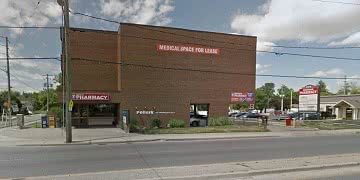" One doctor we went to referred to narcotics as the N-word," states Ann Jacobs, a patient supporter for the American Pain Structure who cares for her chronically ill other half in Laramie, Wyo." [Doctor's] are so fearful of the DEA, frightened of losing their license. So individuals go asking for pain relief." Lots of doctors are concerned that there is a limit on just how much they can prescribe in the course of their practice (legally there isn't), and if they fear their overall number of prescriptions has actually gotten expensive, they might cut back on refilling or composing brand-new prescriptions.
" This is genuine. We've had [patients] call where the physician has fired them and won't even take their callsand that's it, out in the cold." It's a difficult balance. Medical professionals require to monitor their patients to ensure there's no misdeed, while patients with a legitimate need wish to guarantee a continuing supply of meds.
For a description of this practice, see Health (where do you find if your name is on a alert for drug issues with pain clinic?).com's interview with leading discomfort professional, Russell K. Portenoy, MD. "You have to be there every one month, or you need to actually go there to get it filled up," states Cowan. "And sometimes if you miss one consultation, you have actually broken your contract, and the doctor says that's it, goodbye, no more." Andrea Cooper, 52, of Phoenix, Md., who suffers from fibromyalgia and back degeneration, has felt the stigma of narcotic usage.
There were register all over the office about guidelines and restrictions. Everything about being suspicious of the clients. Not the way medication ought to be practiced. I discovered it insulting." Includes Jan, 45, a chronic discomfort sufferer in Stone, Colo.: "I believe doctors need to be able to differentiate in between individuals who can manage it and those who ca n'tand assist individuals who can." If a physician, for whatever factor, is uneasy composing prescriptions for opioidswhether it's a new prescription or a refillpatients can request for a referral to a pain professional. what is a pain clinic and what do they do.
Editor's Note: Dr. Radnovich treats discomfort patients in Boise, Idaho. is well related to nationally as a leading scientific research website for discomfort. He has actually accepted write some columns for the National Discomfort Report. Dr. Radnovich A lot of practicing physicians are not as warm and accepting as TV's Dr. Oz. Going to a new physician can be a challenging or embarrassing experience.
You've most likely had at least one bad experience with a doctor. Perhaps you were treated in a dismissive or patronizing way or, even worse, you were called "an addict" or told that your discomfort is "all in your head". (More on that in a future blog site). So how to talk with your medical professional looked like a pretty great start to a blog site series.
The Basic Principles Of How Long Does It Take To Get An Appointment At A Pain Clinic
Here are 10 things never to state to your medical professional about your persistent pain. Don't tell your doc "I harm all over". If you inform me this my next questions are likely to be "do your teeth injure? Or do you toe nails hurt? Or do your eyeballs injure? When your physician asks you "where does it harm" try to be particular; pick the 1 or 2 most affected locations or the locations where the discomfort started.
Years back, while operating in an ER in St. Lucia, a farmer came in suffering discomfort in his anus "like a chicken bone stuck sideways up there". Well, as it turned out he did. However the majority of the time attempt to use easy descriptors like 'sharp', stabbing', 'dull', or 'achy'.
Right. And who did not fall off the swings when they were kids? There are some health specialists that reach back and try discover a 'factor' for the discomfort. In my experience, these normally mislead from the real cause of pain and lead to inadequate, unnecessary treatment. A previous event or injury can be considerable if you had specific, constant pain in a specific spot considering that the event.
Do not state anything related to a work injury or automobile mishap, even if that is genuinely how the discomfort started. Unfortunate but real, stating that your discomfort is from a car accident or work injury will likely lead to the doctor thinking that you are overemphasizing your problems for "secondary gain", like attempting to get a huge cash settlement.
Absolutely nothing states 'drug candidate and abuser' to https://plattevalley.newschannelnebraska.com/story/42159633/rehab-center-provides-tips-for-choosing-the-right-addiction-treatment-center your doctor faster than stating the only thing that works is Percocet. You are developing a relationship and asking the medical professional for help; not asking for a particular treatment plan. It is disadvantageous to pronounce what she must offer to you. Especially if that is opioids.
Yes, it is aggravating and may take longer, however in the end you will establish a great relationship and may get a much better care. Don't offer to your doctor that you do not abuse drugs or that you are not an addict (what i need for open https://midplains.newschannelnebraska.com/story/42179963/boca-raton-drug-treatment-center-offers-tips-on-choosing-the-right-rehab-center a pain clinic office in ms). If you blurt out such declarations, she will presume that you do which you are.
6 Easy Facts About Why Do Patients Have To Go Through Pain Clinic To Get Pain Meds Described
Terrific, if you attempted whatever and you still have pain; why are you seeing me? Plainly I must have something you have not tried. Make a list of treatments and medications you have tried. Let the doc decide if that is genuinely everything and if she has anything else to use.
It is all right to point out other doctors' concepts, however that might activate a defensive response from the brand-new doc. Don't inform the medical professional you dislike everything; particularly anti-inflammatories, gluten or vaccinations. Don't say anything about a diagnosis or treatment that you found on the internet or from TELEVISION.

The Pain Clinic provides clients with a range of options to lessen, manage and control discomfort. Our mission is to assist patients of any ages manage persistent discomfort and improve their lifestyle. Typical conditions consist of: Lower-back pain Neck pain Headache Postherpetic neuralgia (shingles) Reflex sympathetic dystrophy (RSD) Chronic discomfort is an intricate medical problem that can affect all locations of your life.
The Pain Clinic provides various treatments for a large range of pain victims. If you deal with persistent pain, you might take advantage of our services. Discuss pain management choices with your medical care doctor. Our skilled team comprehends the distinct requirements of pain patients. The Pain Clinic staff works in partnership with each client's main care physician to develop individualized pain management and treatment strategies.
Provider supplied range from assisting a patient's medical care doctor manage his/her pain regimen, to administering anesthetics or other treatments such as Botox treatment and acupuncture for certain conditions. All treatment is carried out under an anesthesiologist's direction, with experienced nurses and assistants completing The Pain Clinic care team. The Discomfort Center includes the current in both medical equipment and comfy features.
The Discomfort Center sees a vast array of persistent pain clients. The following are the most typical reasons clients seek treatment at The Pain Clinic: Back pain Neck discomfort Muscle pain (myalgia) Nerve pain Leg pain Arm pain Headaches Postherpetic neuralgia (shingles) Fibromyalgia Osteoarthritis Trigeminal neuralgia The Discomfort Clinic uses procedural-based and collaborative services.
